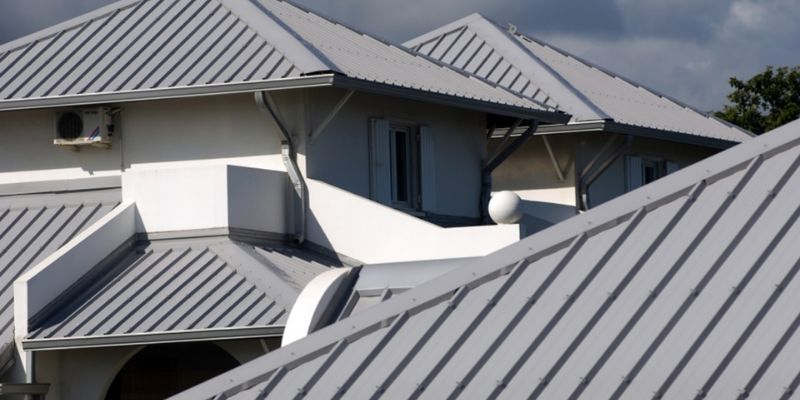It is essential to make an educated decision when selecting a roofing system for your home. In addition to providing protection from the elements, the right roofing system also improves the appearance of your property and increases its value. It can be difficult to “How Do I Choose the Right Roofing System for My Home?”. However, if you take a few things into consideration and are familiar with the various roofing systems, you can confidently select one that meets your requirements and preferences.
How Do I Choose the Right Roofing System for My Home?
Various factors that influence a roofing system’s functionality, durability, and aesthetic appeal must be taken into consideration when selecting one for your home. For your convenience, a step-by-step guide is provided below:
Assess your needs and budget
Before diving into the world of roofing systems, evaluate your requirements and determine your budget. Ask yourself inquiries like:
- Do I reside in a region susceptible to severe weather?
- How long do I expect to remain in this house?
- What is my roofing project budget?
By responding to these questions, you will have a clear understanding of your requirements, enabling you to concentrate on options that meet your requirements and financial capabilities.
Consider the climate in your region
The climate in your region plays a crucial role in selecting the right roofing system. Different materials perform better in specific weather conditions. For instance:
- In hot climates, materials with reflective properties like metal or tiles can help keep your home cooler by reflecting sunlight.
- In areas with heavy rainfall, materials like asphalt shingles or clay tiles are excellent choices due to their water-resistant properties.
Understanding how different roofing materials perform in your climate can help narrow down your options.
Research different roofing materials
To choose the right roofing system, it’s crucial to research and understand the different materials available in the market. Here are some popular options to consider:
Asphalt shingles
- Cost-effective and easy to install
- Wide range of colors and styles available
- Suitable for most climates
Metal roofing
- Durable and long-lasting
- Excellent energy efficiency
- Suitable for various architectural styles
Clay or concrete tiles
- Stylish and aesthetically pleasing
- Highly durable and fire-resistant
- Well-suited for warmer climates
Slate roofing
Elegant and timeless appearance
Extremely durable and low-maintenance
Expensive but can last for centuries
Evaluate durability and maintenance requirements
When choosing a roofing system, consider the durability and maintenance requirements of each material. Factors to assess include:
- Lifespan of the roofing material
- Resistance to weathering, cracking, and fading
- Maintenance needs such as regular cleaning or sealing
Opting for a durable material with minimal maintenance requirements can save you time and money in the long run.
Consider energy efficiency
Energy efficiency is a growing concern for homeowners. Selecting an energy-efficient roofing system can help reduce your energy bills and contribute to a greener environment. Look for roofing materials with high insulation properties or options that allow for the installation of solar panels.
Seek professional advice
If you’re unsure about which roofing system is best for your home, consider consulting with a professional roofing contractor. They have the expertise to assess your specific needs, provide recommendations, and ensure proper installation.
FAQs
Q: How long does a typical roofing system last?
A: The lifespan of a roofing system depends on various factors, including the material used, installation quality, climate conditions, and maintenance. On average, asphalt shingles last around 20-30 years, while metal roofs can last 40-70 years or more.
Q: Are metal roofs noisy during rainstorms?
A: Contrary to popular belief, metal roofs are not significantly noisier during rainstorms. Proper insulation and the installation of a solid roof deck help minimize any noise associated with rainfall.
Q: Can I install solar panels on any roofing system?
A: Solar panels can be installed on various roofing systems, including asphalt shingles, metal roofs, and flat roofs. However, it’s important to consult with a solar professional to assess the compatibility and structural integrity of your roof.
Q: Is it possible to change the color of my roof later on?
A: While it’s possible to change the color of some roofing materials, such as asphalt shingles, it’s more challenging for materials like concrete tiles or slate. Consider selecting a color that you’ll be satisfied with for the long term.
Q: Do different roofing materials have an impact on home insurance premiums?
A: Yes, the roofing material can influence your home insurance premiums. Materials that are more durable and fire-resistant, such as metal or slate, may result in lower insurance costs due to their reduced risk factors.
Q: What are the main advantages of clay or concrete tiles?
A: Clay or concrete tiles offer excellent durability, fire resistance, and a wide range of architectural styles. They can provide a distinct and stylish appearance to your home.
Wrap Up
Choosing the right roofing system for your home involves careful consideration of your needs, budget, climate, and material options. By following the steps outlined in this guide and seeking professional advice when needed, you can make an informed decision that ensures your home remains protected and visually appealing for years to come.


cozaar 50mg drug – cephalexin 250mg brand buy keflex 250mg without prescription